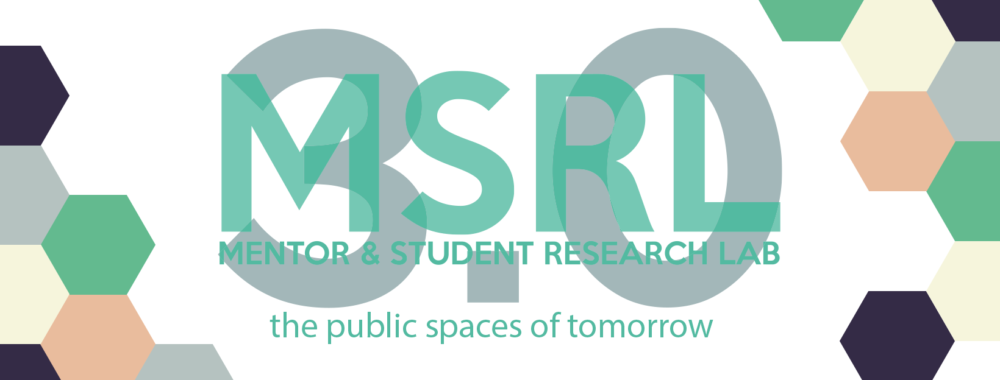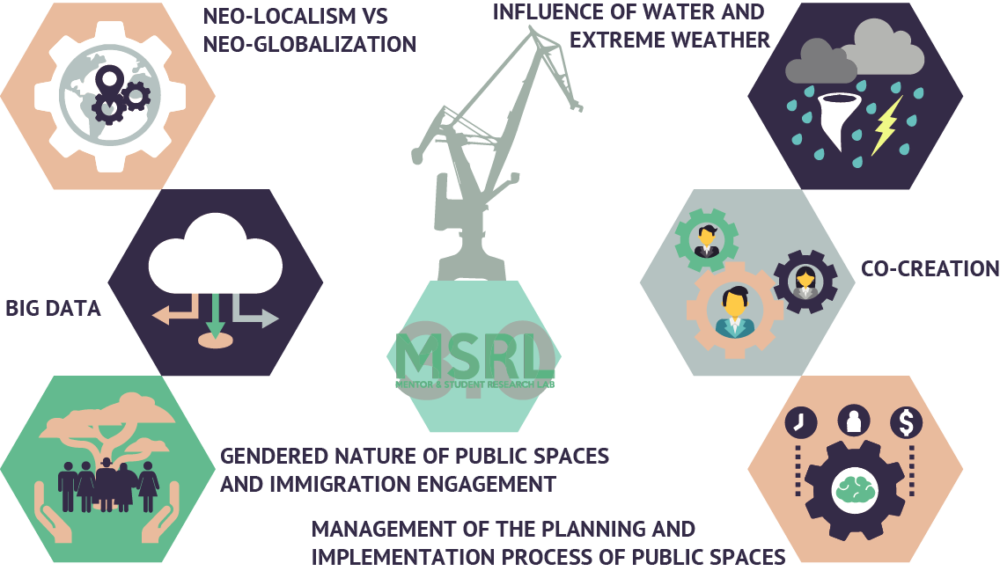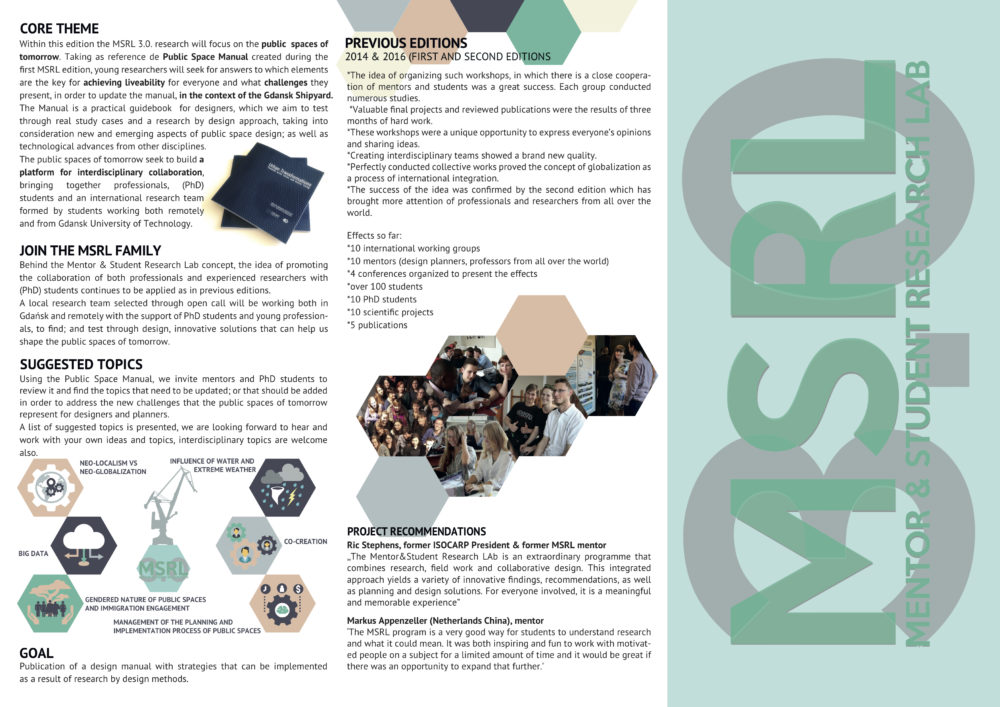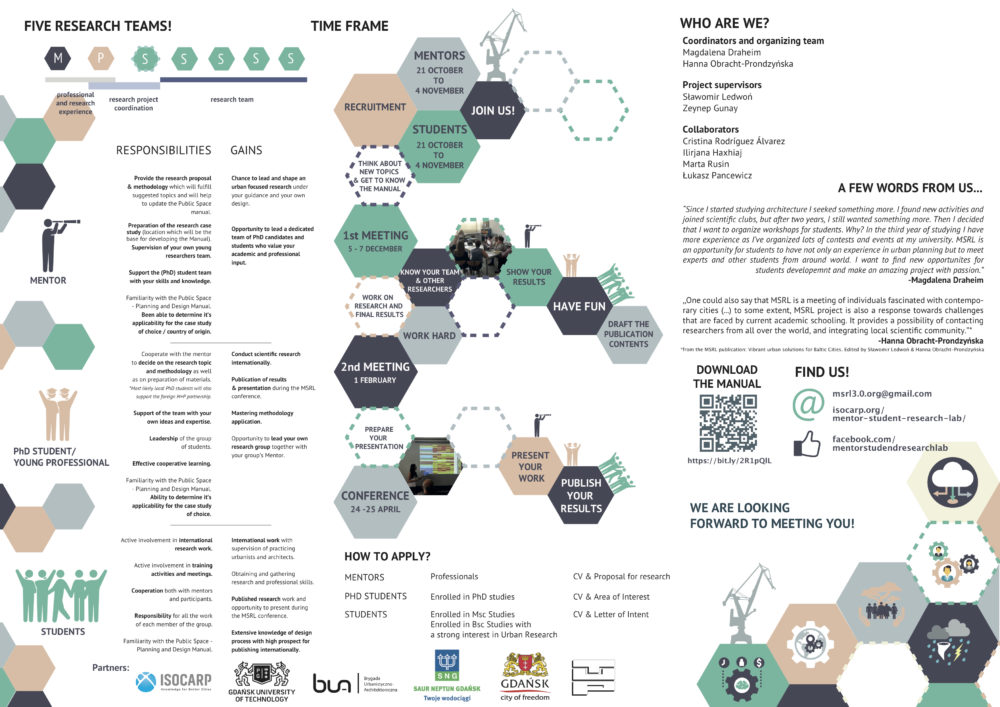The public spaces of tomorrow, 2019/2020
SAVE THE DATE December 5-7
Core Theme MSRL 3.0
In the name of the Mentor & Student Research Lab’s team, we are very pleased to invite you to participate in the third edition of the Mentor & Student Research Lab (MSRL) titled “The Public Spaces of Tomorrow” and answer this call. MSRL is organized jointly by the Faculty of Architecture at Gdansk University of Technology, the International Society of City and Regional Planners (ISOCARP) and Brygada Urbanistyczno-Architektoniczna (BUA). As an established educational and research project, MSRL will allow you to lead a dedicated team of students, in a research of your own design with the cooperation of a mentor.
The main aim of MSRL is to create a space for collaboration between professionals and students in the field of urban studies. MSRL aims to provide a framework for the exchange of experience of the mentors with the initiative and creative energy of young designers and researchers. For the student participants, MSRL gives a good chance to gain research experience in an international work environment with the mentor’s support; and the PhD students lead and supervision. For the participating mentors, the project creates an opportunity to conduct research in their field of expertise with the cooperation of a dedicated and enthusiastic team of local participants. The quality of the work is ensured through the supervision of the academic partners from the Gdansk University of Technology.
The project opens up during workshop taking place 5th – 7th December 2019 during which the students and mentors primary “match making” workshop in Gdansk, Poland. The meeting ends up with work objectives and topics and the online cooperation begins. Detailed topics are crafted together by each mentor and their research teams at the beginning of the project and will be developed in the following months. Results will be presented at the conference on the 24 – 25th April 2020 in Gdansk, and published in the form of a scientific paper. All scientific papers will be additionally distributed by ISOCARP in the form of a report. This year’s edition focuses on the public spaces, and their role as key elements of future cities.
Each of this edition’s teams will consist of 1 international Mentor, PhD student and 5-6 students. The time frame for the research is from the 5th of December 2019 to the 25th of April 2020. This project will be conducted entirely in English.
We plan to work on the basis of the Public Space Planning and Design Manual, created in the first edition of the project. The Manual is a practical guidebook for designers. The public spaces act as a central focal point of social activities and impacts on the physical and mental well-being of the residents. Their use, physical character, social dimension is closely tied to the character of the city and its changes within the city. The aim of the project is to update the Manual taking into account the new and emerging practical aspects of public space design.
Potential list of suggested topics of the research may include:
Public spaces and Neo-localism vs Neo-globalization
How local solutions and giving more power to places and people counteracts globalisation? What are the benefits of neo-localism guided policy programmes? What role do we want for families and culture in the public spaces of tomorrow? How does the neoliberal market affect local public spaces?
Public spaces and Big Data
How is Big Data currently being used by planners? What can we achieve through its use when designing public spaces? What is the impact of large data sets that is constantly produces in the urban environment? Can public spaces be shaped in real time when at the same time urban data is produced by users? Can Big Data be used as a collective tool for public participation?
Gendered nature of public spaces and immigration engagement
What is the gendered nature of the public space? How can we gender create safer and more inclusive cities? Do different genders use public spaces in different ways? How can public space bring gender equality? What’s the role of women in the creation of public spaces?
What’s the role of public spaces for immigrants? Might immigrants be using the public space for different purposes than locals? How to engage immigrant communities in the creation of new public spaces? How can the institutional invisibility of certain immigrants be taken into account when designing public spaces?
Influence of water and extreme weather
How design can influence the degree of impact of extreme weather events? Which are the design strategies that can help us alleviate rising average temperatures and the effects of sudden downbursts? How can we adapt existing infrastructures for the effects of climate change?
Public spaces and Co-creation
How communities affect the creation of public spaces? How self-organization is changing the role of planners and governments? How informality can be included in formal developments? How institutions can use self-organization and co-creation as city making instruments?
Management of the planning and implementation process of public spaces
Nowadays, we already know quite a lot about successful public spaces and their management, yet, how is it possible to get local and national governments more involved in their management? How emerging management approaches will evolve in the future? What’s the degree of success of different implementation strategies, and which are the key elements of their success? How bottom-up and public private partnerships can evolve in the future?
Find out more about MSRL 3.0 tasks and benefits in the
MSRL 3.0 Brochure
Five Teams
Timeline
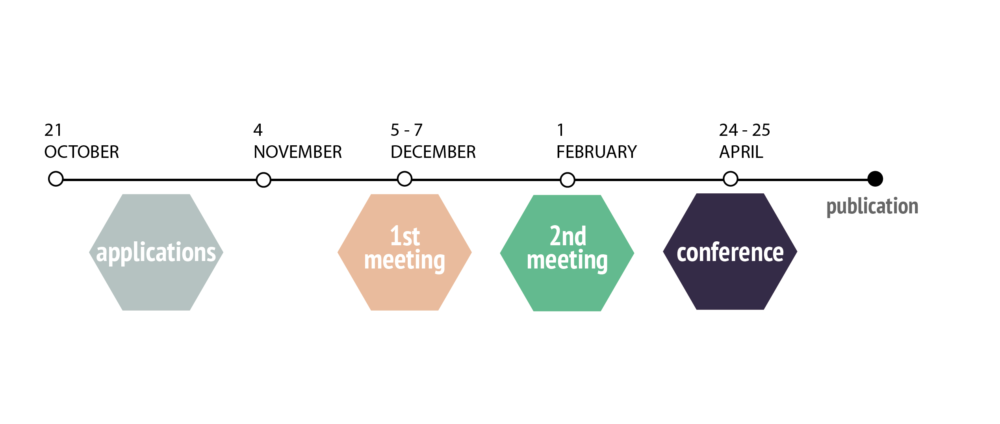
Files to download
Find out more about MSRL in brochure
MSRL 3.0 brochure
Would you like to be a Mentor?
Call for Mentors
Would you like to be a Participant?
Call for Students
